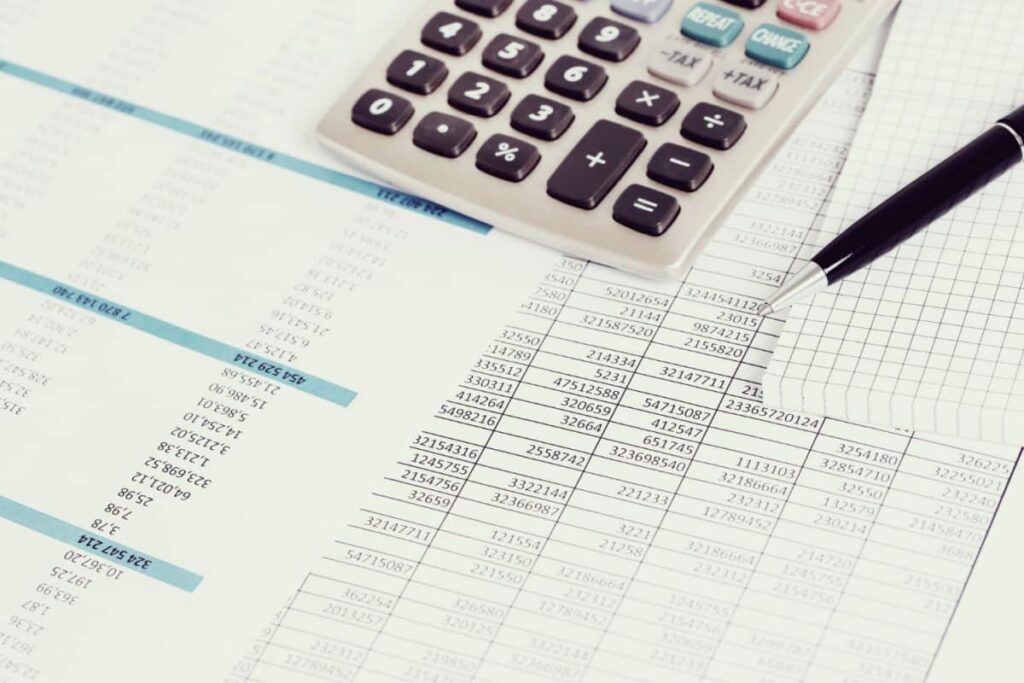Australian small company operators must prepare their taxes for EOFY. Planning your taxes can save you money and save last-minute stress. These six tax recommendations will assist your small business in managing the EOFY.
Keep Impeccable Records
1. The Foundation of Financial Management
In small business, your records are much more than just a pile of paperwork or a digital trail. They underpin your financial management and EOFY strategy. Recording and categorising every transaction, no matter how minor, is crucial. This careful technique helps you file taxes and shows your business's financial health.
2. Adopting Digital Solutions
No more shoeboxes of receipts and handwritten ledger entries. A strong accounting software solution transforms small enterprises in the digital era. These tools can interact with your financial systems, track spending live, and automatically classify transactions. Financial reports and dashboards give crucial insights. Xero, MYOB, and QuickBooks are prominent Australian tools that simplify EOFY preparations.
3. Receipts and Invoices: The Backbone of Record-Keeping
Every receipt and invoice is a tax jigsaw piece for your firm. You must have clear, readable copies of each. Remember, the ATO may request these records for five years following a transaction. Digital solutions can scan and preserve receipts and invoices electronically, preventing lost or damaged paper copies.
4. Bank Statements and Reconciliations
Your bank statements are crucial records that must align with your internal records. Regular bank reconciliations ensure accounting records match bank statements. This approach detects anomalies early and improves financial record accuracy. Regular reconciliations can also uncover odd transactions, detecting mistakes or fraud early.
5. Tax Records and Compliance
Apart from helping in financial management, impeccable records are your first line of defence in tax compliance. They back up your deductions and income. Comprehensive and structured records may quickly prove tax law compliance in an ATO audit, saving you fines and stress.
6. Continuous Monitoring and Regular Updates
Finally, record-keeping should go beyond EOFY. Keeping your records updated and monitored throughout the year may prevent errors, reduce the strain, and clarify your business's finances. It helps you decide whether to invest in expansion or minimise costs.
Understand Your Deductions
Tax deductions might be confusing, but they're necessary to reduce your tax payment. Let's explore what you may claim and how to maximise deductions.
1. The Basics of Deductibility
First, deductible expenses must be directly tied to business income. Personal costs are prohibited. You can claim the business component of a business-personal cost. You can deduct business calls if you use your phone for personal and business calls.
2. Commonly Overlooked Deductions
Due to ignorance, many small company owners miss deductions. Advertising, bank fees, business travel (especially overseas), education and training, home office expenditures, and professional subscriptions are often forgotten. Review all costs and seek a specialist to find deductions.
3. Depreciation: A Hidden Gem
Depreciation is another savings area. This involves deducting the depreciation of your company assets. How to depreciate office equipment, computers, and machines may drastically lower your taxable revenue. Understanding depreciation techniques and rates are important since the ATO gives specific instructions.
4. Maximising Motor Vehicle Expenses
Vehicle expenditures may be costly for many organisations. If you drive for business, you can deduct these charges. The 'cents per km' approach (up to a limit) or the 'logbook' method (at least 12 weeks of thorough information) are options. Choose the technique that meets your business needs—each has pros and cons.
5. Navigating the Home Office Deduction
Understanding home office deductions is crucial as more people work from home. A separate workstation lets you deduct power, internet, and rent or mortgage interest. Be precise in calculating the percentage of these costs related to your business activities.
6. The Importance of Accurate Documentation
Lastly, accurate documentation is key to substantiating your claims. Keep comprehensive deduction records and receipts. You must prove your claims in an audit. Complying isn't enough—you need to maximise your deductions.
Understand Superannuation Contributions
1. The Basics of Superannuation in Business
Superannuation, or 'super', is crucial to Australian personal and employee financial planning. Small company owners must comprehend superannuation contributions. Super is a retirement savings plan. Employers, including small businesses, must fund employee super funds. SG stands for Superannuation Guarantee.
2. Navigating the Superannuation Guarantee
The Superannuation Guarantee is the minimum proportion of employee wages you must contribute to super. Since my previous update, the Australian government has set this rate, which can vary, so remain informed. Timeliness and correctness are crucial to avoid the Superannuation Guarantee Charge, which comprises the deficit, interest, and administrative costs.
3. Contributions to Different Employment Types
Understanding the nuances of super contributions for various employees is essential. Full-time and part-time employees are typically straightforward, but the rules differ if you hire contractors or have casual staff. In some cases, even if someone is a contractor by label, the nature of their work might qualify them for super contributions. It's important to assess each working relationship against the ATO's criteria.
4. Personal Super Contributions
Small company owners should watch their super, especially solo traders and partners. Personal super contributions are commonly ignored in self-employment. Contributions can boost your retirement nest fund and bring tax benefits. Personal contributions can be tax-deductible, but there are limits.
5. The Timing of Contributions
Timing is key for great contributions. For current financial year deductions, super fund contributions must be received by EOFY. This requires forethought because processing dates vary, and late payments may miss the tax deduction window and incur penalties.
6. Superannuation as a Business Strategy
Beyond compliance, savvy business owners view super contributions as a strategic tool. Offering competitive super contributions or other incentives helps recruit and retain top talent. You can stand out in a competitive market by showing talent that your company cares about employee wellbeing through strong superannuation contributions.
Review Your Assets
Assessing your assets for the EOFY is like checking your business's finances. Take stock of your assets and how they affect your firm. Small businesses own goods like computers, machinery, automobiles, furniture, intellectual property, and software.
The tax ramifications of your holdings in Australia might be enormous. The ATO lets small firms write off some assets instantly rather than depreciating them over time. This rapid asset write-off can help you manage your tax responsibilities, but you must know the restrictions. Staying current on tax legislation, which is typically stated in the federal budget, is crucial.
Take a piece of machinery you bought this year. Your taxable income can be significantly reduced by claiming the full cost of this item in your current tax return under the quick asset write-off. Strategic company planning and rapid tax reduction are involved. You may improve your business's cash flow and growth by scheduling and comprehending large asset purchases and their tax effects.
It goes beyond buying new assets. Reviewing your assets involves assessing your possessions. Is there obsolete equipment to upgrade? Are there assets you no longer need or may sell? Understanding the full tax ramifications of selling assets, such as capital gains tax, is vital.
Remember that the value of assets goes beyond their physical value. Insurance, loan collateral, and other business funds might be affected. Your business books should accurately value and account for your assets for EOFY and financial management.
Managing assets for tax considerations is vital, but consider your company plan. Assets should primarily serve your business needs and goals, not just your tax planning. Balancing tax benefits with operational efficiency and business growth is key to long-term success.
Consider Prepaying Expenses

Small company owners might benefit from prepaying expenditures as the fiscal year ends. Prepaying goods or services might carry tax deductions into the current fiscal year. It's like a corporate finance chess move, helping you control taxed income.
Prepaying costs is beneficial if you expect a bigger income this year. Bringing forward costs can decrease your current year's taxable income, lowering your tax rate and liabilities. This strategy involves wise financial management, matching costs and income to improve cash flow and save taxes.
Common company costs include paying rent, insurance, subscriptions, and professional affiliations. Prepaying a July insurance coverage in June lets you deduct it this year. A basic yet efficient tax optimisation method.
The Australian Taxation Office (ATO) restricts what costs may be prepaid and for how long. Service periods of 12 months or fewer and ending in the following financial year are required for current-year deductions. To make tax-effective prepayments, you must understand these requirements.
Prepaying costs is great, but your business's financial health is important. Your firm needs enough cash flow to handle these expenditures without affecting operations. Good tax preparation should maintain your business's operations.
Prepaying costs might provide immediate tax reduction and defer revenue to the next year. You must compare today's tax reduction benefits against a larger taxable income next year.
Consider prepaying expenditures as part of your small business's financial plan. It's about making financial decisions that help your business grow and survive, not just tax savings. As usual, consult a financial adviser to personalise this plan to your firm and ensure it meets your short- and long-term financial goals.
Seek Professional Help
Professional guidance with taxes may transform your small business, especially as EOFY approaches. Uninitiated taxpayers may need clarification on the Australian tax system due to its complex rules and shifting restrictions. Not only for compliance but also to maximise your tax status, a tax specialist is vital.
Tax Warehouse is a notable tax agency. We concentrate on maximising deductions to optimise tax savings. We attract small enterprises with our price and ease. Tax compliance is time-consuming and expensive, but we provide a cost-effective solution.
One key advantage of Tax Warehouse is our accessible online platform. In today's digital age, the ease of applying online for tax assistance is a significant plus. You can request help directly through our website, which is straightforward and quick. This digital approach allows Tax Warehouse tax agents to help you file your tax return quickly, saving you time.
Our service offers more than convenience; it offers peace of mind. Our tax agents know Australian tax legislation, especially for small enterprises. We can explain complex deductions and advise on tax strategy for your business. This might be helpful if your firm has unique tax issues or demands.
It's tempting to do everything yourself to save money, but taxes are hazardous. Misunderstanding tax regulations might result in costly blunders or missed opportunities. Professional guidance may prevent these mistakes and reveal tax benefits and solutions you may have yet to consider.
Contact us as you prepare for EOFY. Our knowledge, simplicity, and price make us a great alternative for small businesses managing tax requirements. We can assist you in complying with tax rules and improve your financial results so you can focus on operating your business.
Conclusion
As we conclude, our six small company EOFY tax advice, preparation, expertise, and strategic planning are your greatest allies. To confidently and successfully navigate the EOFY, you must understand your deductions, keep excellent records, manage superannuation, examine assets, prepay costs, and seek expert guidance.
The goal goes beyond checking off a list. It's about seeing EOFY as an opportunity, not a burden. It is time to evaluate your organisation, prepare for the future, and verify that your financial practices support your aims.
Despite its complexity, the Australian tax system is manageable with the correct attitude and resources. New and experienced business owners should remember that these ideas are for compliance and a healthy financial future.
As the EOFY approaches, customise these recommendations to your company's needs and remember that a well-planned tax strategy may make all the difference in small business. Have a great EOFY and a great year for your business!
Content Summary
- Australian small business operators must prepare their taxes for the EOFY to save money and reduce stress.
- Your records are the foundation of financial management and EOFY strategy.
- Recording and categorising every transaction is crucial for filing taxes and showing your business's financial health.
- A strong accounting software solution can transform small enterprises in the digital era by interacting with financial systems, tracking spending live, and automatically classifying transactions.
- Financial reports and dashboards provide crucial insights.
- Every receipt and invoice is a tax jigsaw piece for your firm. Have clear, readable copies of each.
- Remember that the ATO may request these records for five years following a transaction.
- Digital solutions can scan and preserve receipts and invoices electronically, preventing lost or damaged paper copies.
- Regular bank reconciliations ensure accounting records match bank statements, detecting anomalies early and improving financial record accuracy.
- Comprehensive and structured records can quickly prove tax law compliance in an ATO audit, saving you fines and stress.
- Maintaining your records updated and monitored throughout the year may prevent errors, reduce strain, and clarify your business's finances.
- Tax deductions are necessary to reduce your tax payment.
- Deductible expenses must be directly tied to business income, and personal costs are prohibited.
- Many small company owners miss deductions due to ignorance, such as advertising, bank fees, business travel, education and training, home office expenditures, and professional subscriptions.
- Depreciation is another savings area involving deducting the depreciation of company assets. Understanding depreciation techniques and rates is important since the ATO gives specific instructions.
- Deducting motor vehicle expenses using the 'cents per km' approach (up to a limit) or the 'logbook' method (at least 12 weeks of thorough information).
- A separate workstation allows you to deduct power, internet, and rent or mortgage interest.
- Be precise in calculating the percentage of these costs related to your business activities.
- Accurate documentation is key to substantiating claims.
- Keep comprehensive deduction records and receipts.
- Superannuation is crucial to Australian personal and employee financial planning.
- Employers, including small businesses, must fund employee super funds.
- Navigating the Superannuation Guarantee is essential to avoid the Superannuation Guarantee Charge, which includes the deficit, interest, and administrative costs.
- Small company owners should watch their super, especially solo traders and partners, as they can boost retirement nest funds and bring tax benefits.
- Timing is key for great contributions, as EOFY must receive super fund contributions.
- By offering competitive super contributions or other incentives, savvy business owners can stand out in a competitive market by showing talent that your company cares about employee wellbeing through strong superannuation contributions.
- The Australian Taxation Office (ATO) has introduced a rapid asset write-off program for small businesses, which can help manage their tax responsibilities and improve cash flow and growth. This program allows businesses to write off assets instantly rather than depreciating them over time, allowing them to manage their tax responsibilities effectively.
- However, staying current on tax legislation, typically stated in the federal budget, is crucial.
- Reviewing assets involves assessing your possessions, such as obsolete equipment and no longer needed or sold assets, and understanding the full tax ramifications of selling assets, such as capital gains tax.
- Your business books should accurately value and account for your assets for EOFY and financial management.
- Balancing tax benefits with operational efficiency and business growth is key to long-term success.
- Small company owners may benefit from prepaying expenditures as the fiscal year ends, as it can carry tax deductions into the current fiscal year.
- Prepaying costs is beneficial if you expect a bigger income this year, as it can decrease your current year's taxable income, lowering your tax rate and liabilities.
- This strategy involves wise financial management, matching costs and income to improve cash flow and save taxes.
- Common company costs include paying rent, insurance, subscriptions, and professional affiliations.
- Prepaying a July insurance coverage in June allows you to deduct it this year, providing immediate tax reduction and deferring revenue to the next year.
- However, the ATO restricts what costs may be prepaid and for how long.
- To make tax-effective prepayments, you must understand these requirements.
- Consider prepaying expenditures as part of your small business's financial plan.
- It is about making financial decisions that help your business grow and survive, not just tax savings.
- Consult a financial adviser to personalise this plan to your firm and ensure it meets your short- and long-term financial goals.
- Seek professional help with taxes, especially as EOFY approaches.
- Uninitiated taxpayers may need clarification on the Australian tax system due to its complex rules and shifting restrictions.
- Tax Warehouse is a notable tax agency that maximises deductions to optimise tax savings.
- They attract small enterprises with their price and ease, offering a cost-effective solution for tax compliance.
- Tax Warehouse's online platform allows easy application and quick assistance, saving time and preventing mistakes.
- Their tax agents know Australian tax legislation, especially for small enterprises, and can explain complex deductions and advise on tax strategy for your business. Misunderstanding tax regulations can result in costly mistakes or missed opportunities.
- Contact Tax Warehouse as you prepare for EOFY, as their knowledge, simplicity, and price make them a great alternative for small businesses managing tax requirements.
- They can assist in complying with tax rules and improving financial results so you can focus on operating your business.
Frequently Asked Questions
The key deductions include office expenses, business travel, vehicle costs, staff salaries, and superannuation contributions. Pay attention to home office expenses if you work from home, and remember that depreciation on assets can also be significant. Always check the latest ATO guidelines, as tax laws and deductions can change.
Implement reliable accounting software that aligns with Australian tax requirements. Update invoices, receipts, and bank statements regularly. The ATO requires these data to be kept for five years. Consider digital storage to keep them orderly and accessible.
The Superannuation Guarantee requires qualified employees to make obligatory payments, therefore, understanding them is vital. Be aware of the contribution caps and potential tax deductions for personal super contributions. Ensure all contributions are completed before EOFY to claim them in your tax return.
Prepaying bills reduces current-year taxable income. This technique works when you expect a bigger income this year than next. Rent, insurance, and subscriptions are prepayable. However, ATO restrictions on what costs can be prepaid and for how long must be understood before starting.
Absolutely. Tax laws are complicated so an expert can help. Expert tax agents like Tax Warehouse maximise deductions and ensure compliance. They can assist your firm in making financial decisions with customised counsel.















